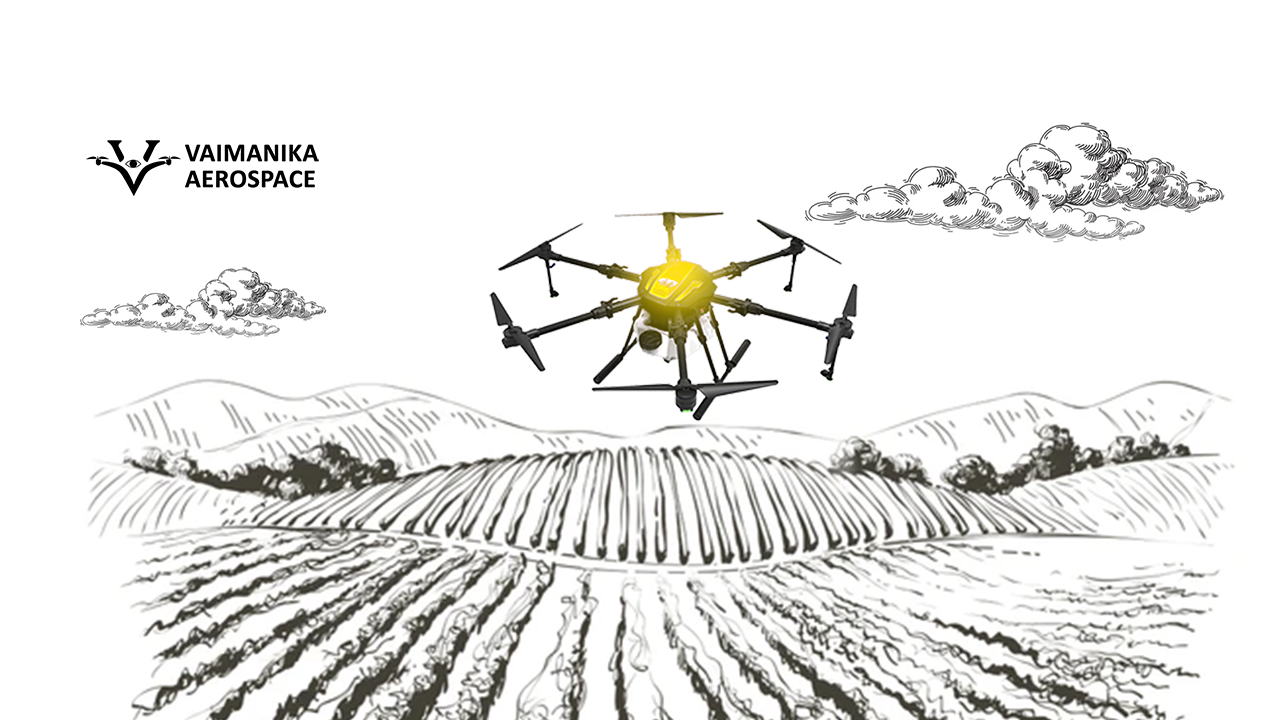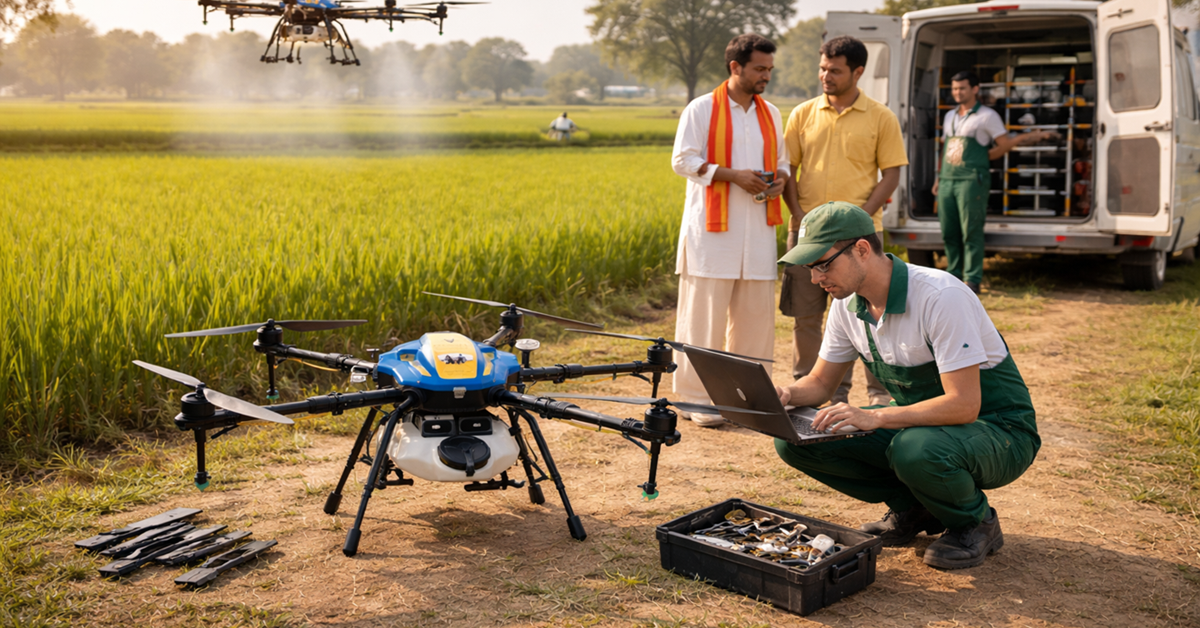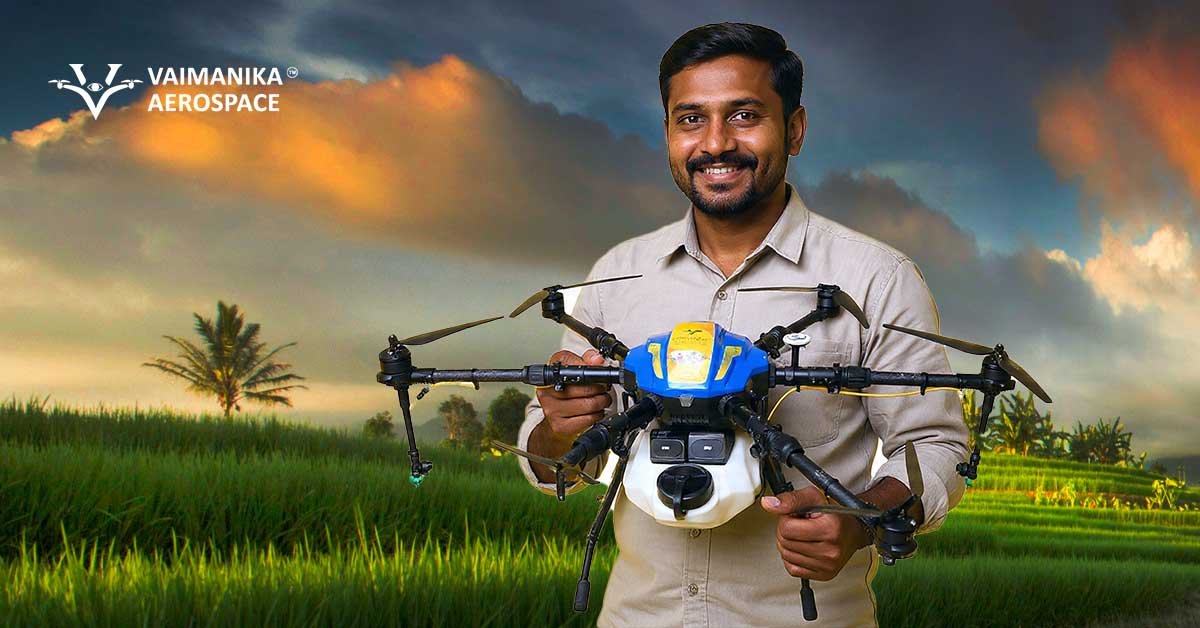As India moves toward sustainable development, agriculture is set to undergo dynamic change. Farming provides employment to more than 40% of the population and is still a primary source of livelihood in the world. However, agriculture is increasingly becoming a source of environmental stress plaguing this country, with over-extraction of water, pesticide runoff, and carbon emissions from traditional machinery being some of the examples. This is where Kisan Drones, or agriculture drones in India, are revolutionizing a new era for farming.
The Importance of the Agri Drones to the New-Age Indian Farming
Kisan Drones are far from being mere flying machines; rather, they are intelligent tools helping a farmer to take precise measurements and follow eco-friendly and efficient practices. These agricultural drones in India have GPS, sensors, cameras, and artificial intelligence processing facilities that provide monitoring and analysis and take action with utmost accuracy.
By cutting out wastage of resources, drones help in creating sustainable farming with data. Here’s how it supports new age farming:
-
Saves Water
In normal irrigation, farmers tend to use more water than required. Kisan drones, with multispectral imaging is able to identify the crop’s health and soil moisture level. This way, the farmer would know exactly when to irrigate and proceed accordingly. The result would be a severe reduction in water usage. Precision irrigation by drones prevents waterlogging and soil erosion arising from irrigation-intensive areas.
-
Reducing Chemical Use
Excessive and indiscriminate application of pesticides and fertilizers is the single biggest cause for pollution of soil and water. Indian agriculture drones ensure that spraying is targeted after collecting real-time data for crop health. Rather than spraying entire fields, drones intervene in treating only worthy areas. This minimizes chemical use and also protects beneficial creatures in the soil or water bodies nearby.
-
Reducing Carbon Footprint
Diesel-powered traditional machinery is put to use in the conventional setup for spraying and fieldwork. Kisan drones basically cut on heavily relying on fuel usage because they are battery-operated and light in weight. Thus, its usage keeps greenhouse gas emissions at bay. In the long run, this will help in reducing agricultural carbon footprint and thus keep farming cleaner and greener.
-
Preventing Soil Degradation
The repeated use of tractors causes soil compaction, which leads to a serious loss of soil fertility and microbial life. Since the drones stay in the air and do not touch the field, heavy equipment not need to go onto the field. Thus, this protects the soil structure and is hence good for long-term health of soil.
-
More Precision in Farming implies Less Waste
Among the benefits offered by agricultural drones in India, one of the best is the accurate data it collects about crop health, pests, and nutrient deficiency. As a consequence, farmers have to act only where needed, hence irrational use of seeds, water, chemicals, and labor can be minimized. Such precision farming then means less waste and more sustainable crop production.
-
Empowering Farmers and Rural Entrepreneurs
A sustainable farming system pertains not only to the environmental aspects but also to economic sustainability. Kisan drone franchise and dealership models allow rural entrepreneurs to set up service-based companies. Farmers can rent drones rather than own them; this makes the technology more accessible and generates work locally.
-
Government Support and Policy Alignments
Schemes such as the Namo Drone Didi Yojana and subsidies under the Sub-Mission on Agricultural Mechanization (SMAM) are fast-tracking the use of agricultural drones in India. Learn more about How Government Subsidies Are Making Kisan Drones Affordable. Such policies encourage the use of drones for functions like pesticide spraying, crop monitoring, and yield prediction; thus, they align national objectives with sustainable farming methods.
Conclusion: The Path Forward
Agri drones are no longer a futuristic idea; they provide real, scalable solutions to some of the nation’s most pressing agricultural concerns. Kisan drones aid in curbing pollution, enhancing yields, and facilitating eco-conscious decision-making. With rising awareness and affordability, drone farming has the potential to become an expression in the vocabulary of an Indian village.
For farmers and agri-preneurs looking to adopt sustainable practices, investing in or accessing Kisan drones is not just a smart move; it’s a step toward a greener, more resilient future.





